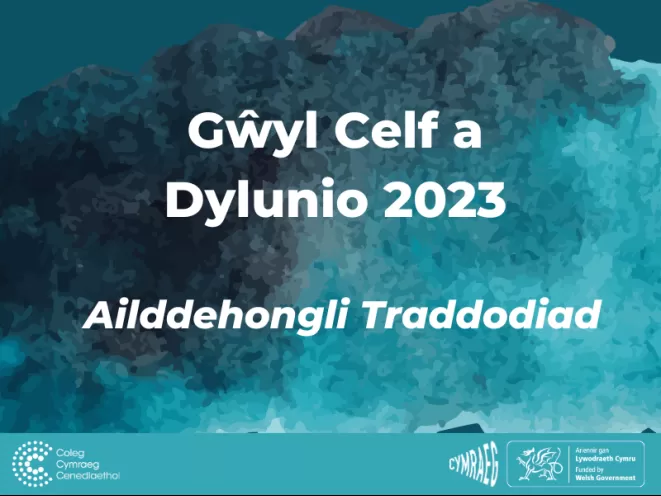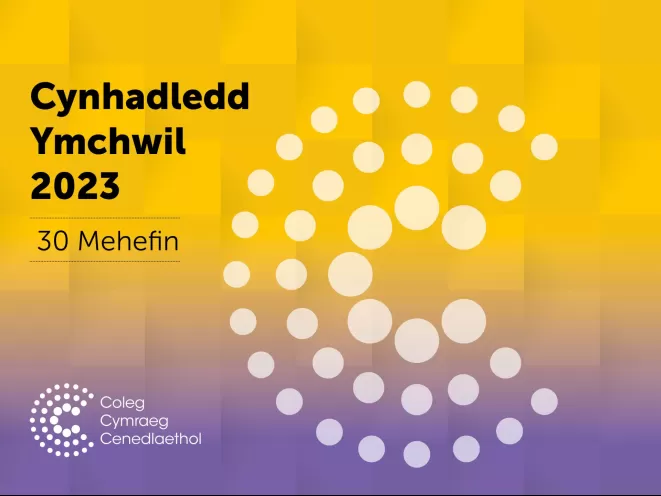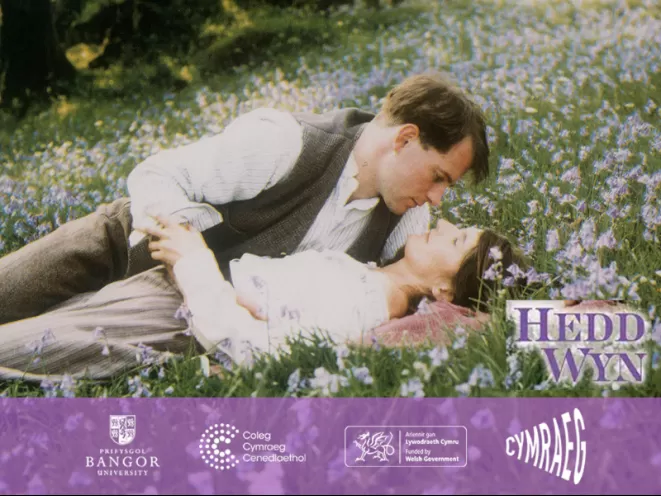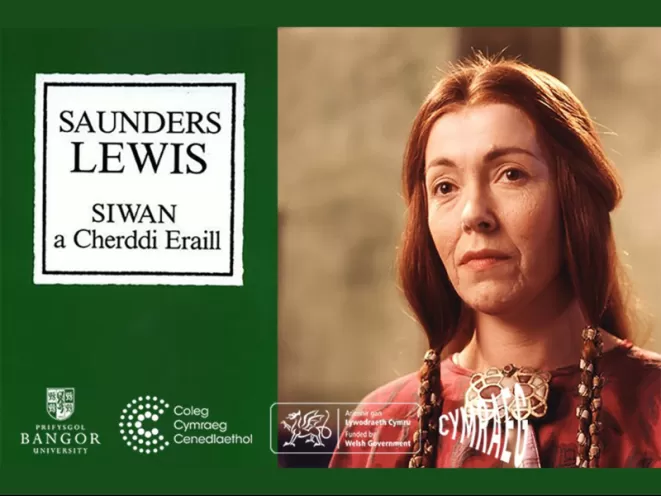The aim of this resource is to introduce language awareness within health and social care to higher education students and professional practitioners. Its main objective is to build students' confidence in using their Welsh with patients and colleagues in the NHS. This resource has been developed for higher education students (level 4+) who are studying any health and care subject and intend to go on to pursue a career in the field. It is also suitable for professional practitioners and can be used as part of continual professional development. Except for Unit 1, each unit follows a specific patient pathway to show how different professions intertwine and have an impact on the experience of the patient or service user. You can work through the whole package in order or pick and choose specific units. The units can be taught in the classroom or studied independently. Most of the units present Welsh words, phrases and terminology to use with patients and staff. Although this vocabulary will be familiar to students who already speak Welsh, they are encouraged to consider how to share and teach the vocabulary to their peers. As a result, this content is suitable for all students, regardless of their Welsh ability.
More than just words: Communication in Health and Social Care
Celf a Dylunio ar y Map - 2023 (Art and Design on the MAP)
The aim of the 'Celf a Dylunio ar y Map’ is to offer a unique opportunity for Welsh-medium Art and Design students to come together in one place to share and discuss their work and to benefit from the experience of artists and others who work in the industry. The theme of the festival was 'Reinterpreting Tradition'. The below video gives a flavour of the festival.
Coleg Cymraeg Research Conference 2023
This Research conference will be held in hybrid form again this year, on 30 June, with a face-to-face audience at the National Library in Aberystwyth, as well as a live broadcast to a virtual audience. You can find more information about the conference in the Coleg Cymraeg events calendar.
Translanguaging Resources
Resources from Dr Alex Lovell, Swansea University to assist with the skill of Translanguaging, which is part of the Welsh Second Language AS/A Level specification (U2 Unit 5, Section B). Resources include: Language Workshop: Translanguaging - video lecture Translanguaging Language Workshop PowerPoint slides Translanguaging worksheet The resources: consider what 'translanguaging' is and what are the benefits? discuss how to write an effective translanguage analyze a good example includes tasks to further practice translanguaging skills Resources created by the Department of Welsh, Swansea University, with funding from the Coleg Cymraeg Cenedlaethol.
Discussion Panel: Yr Hengerdd a Dafydd ap Gwilym
This is a valuable opportunity to hear a panel of experts and familiar faces discuss the early and medieval poetry of Aneirin, Talieisin and Dafydd ap Gwilym. The panel includes Professor Jerry Hunter, Dr Aled Llion Jones, and Professor Peredur Lynch, Bangor University. Specifically suitable for year 13 learners who are studying for their Unit 5 Welsh exam, but of wider interest as well. A session recorded in Pontio, Bangor, during May 2023, in collaboration between Bangor University's Department of Welsh and Pontio. Sponsored by the Coleg Cymraeg Cenedlaethol. Session in Welsh. Looking for more resources? Watch our Ar-lên study sessions available here or here.
Childcare Case Studies: Including Every Child
This resource has been prepared for learners studying for the Level 2 qualification Care, Play, Learning, and Child Development: Practice and Theory and Unit 001 Principles and Values of Care, Play, Learning and Child Development (ages 0-19). Some of the major principles behind Unit 001 are introduced through case studies, that is 4 stories of young children attending early childhood provision, such as nursery or a cylch meithrin. Here they are: Deio who is 3 years old and has epilepsy. Hanna who is 4 years old and has diabetes. Eshaal who is 3 years old and has allergies. Caio who is three and a half years old and has autism. The studies offer a view of the children through the lens of themes relevant to Deio, Hanna, Eshaal, and Caio – and to every child in fact. These themes – the big principles – are: Children's rights Inclusion Equality of opportunity The most important thing, of course, in any provision is to ensure that all children are safe, but children's conditions should not interfere with their right to have fun, to learn, to enjoy the company of other children, to adventure in the open air... These major principles are framed in legislation such as: the Children Act 1989 and 2004, the Equality Act 2010, the Well-being of Future Generations (Wales) Act 2015. And there are policies and guidelines such as the UN Convention on the Rights of the Child and the Welsh Government's Seven Core Aims. These will be a thread through the 4 case studies and they apply to Deio, Hanna, Eshaal, and Cai and yet, they are important to all children.
Discussion Panel: Branwen
This is a valuable opportunity to hear a panel of experts and familiar faces discuss Branwen, ferch Llŷr. During the session, there will be a discussion on various aspects of the story by experts on medieval prose. The panel includes Professor Jerry Hunter and Dr Aled Llion Jones, Bangor University, and Dr Rhiannon Ifans. Specifically suitable for year 13 learners who are studying for their Unit 5 Welsh exam, but of wider interest as well. A session recorded in Pontio, Bangor, during April 2023, in collaboration between Bangor University's Department of Welsh and Pontio. Sponsored by the Coleg Cymraeg Cenedlaethol. Session in Welsh. Looking for more resources on Branwen? Watch our Ar-lên study sessions available here.
Evaluating the PERMA-profiler to identify and support pupil mental health and wellbeing in the transition to s...
Poor mental health and well-being is an unprecedented problem among children today. Seligman (2011) proposes that well-being and happiness should be supported through positive psychology approaches. The PERMA-profiler (Positive emotion, Engagement, Relationships, Meaning, Accomplishments/Achievements) (Butler and Kern 2015) requires individuals to self-assess levels of ‘flourishing’. This pilot project aimed to assess the value of the PERMA-profiler as a tool to identify the general mental health and well-being of year 7 pupils in three secondary schools. Following the first questionnaire, teachers were offered general class design strategies before pupils were reassessed at the end of the term. Results suggest the value of a self-assessment tool in identifying the overall levels of pupils’ mental health and well-being and also the early identification of individuals who may experience subsequent difficulties.
Beliefs about the intrinsic and relational value of the natural world: how do they relate to sustainable behav...
Public messages use a variety of methods to encourage sustainable behaviour (i.e. pro-environmental behaviour), including emphasizing the intrinsic value of nature (the value of nature beyond its usefulness to people) and the relational value of nature (the value of people’s relationship with nature). In this study, we present the results of a survey of adults in the United Kingdom (n = 499) who completed questionnaires that reflected the intrinsic value of nature (intrinsic value beliefs and biospheric values) and two that reflected the relational value of nature (connectedness to nature and empathy towards nature). The sample reported that they perform low-cost behaviour very often (e.g. taking short showers), consumption behaviour less often (e.g. buying a product with less packaging material), and committed behaviour very rarely (e.g. participating in conservation work). No variable predicted low-cost behaviours. Biospheric values and connectedness to nature were found to predict consumption behaviour. Only the relational value beliefs (connectedness and empathy) predicted committed behaviour. The results have implications for presenting environmental messages from the point of view of the intrinsic and relational value of nature. Recommendations are made for future work in this area.
Discussion Panel: Hedd Wyn
This is a valuable opportunity to hear a panel of experts and familiar faces discuss the award-winning film, Hedd Wyn, scripted by Alan Llwyd and directed by Paul Turner. During the session, there will be a discussion on various aspects of the film including the historical and industrial context, themes, the characters and the use of symbolism in the film. The importance of the film in Wales and internationally will also be discussed. The panel includes Dr Manon Wyn Williams and Professor Gerwyn Wiliams, Bangor University, actor Huw Garmon and Noami Jones, Head of Cultural Heritage at yr Ysgwrn. Specifically suitable for year 12 pupils who are studying the film for the AS Welsh (Unit 1) oral exam, but of wider interest as well. A session recorded in Pontio, Bangor, during March 2023, in collaboration between Bangor University's Department of Welsh and Pontio. Sponsored by the Coleg Cymraeg Cenedlaethol. Session in Welsh. Looking for more resources on Hedd Wyn? Watch our Ar-lên study session available here.
Short Story Resources: Pwy Fyth a Fyddai'n Fetel?
Resources to help study the short story 'Pwy Fyth a Fyddai'n Fetel?' by Mihangel Morgan (from the book Saith Pechod Marwol), which is one of the short stories on the Welsh Second Language AS/A Level specification (U2 Unit 6: The Use of Language and the Short Story). Resources include: Video animation of the short story (with and without subtitles) Video lecture and PowerPoint presentation by Professor Tudur Hallam discussing the story 'Pwy Fyth a Fyddai'n Fetel?' Video lecture and PowerPoint presentation by Professor Tudur Hallam talking about useful vocabulary and phrases to use when discussing the short story. Resources created by the Department of Welsh, Swansea University, with funding from the Coleg Cymraeg Cenedlaethol
Discussion Panel: Dod â Siwan yn Fyw
An opportunity to hear a panel of experts and familiar faces in the world of Welsh drama discussing the play Siwan by Saunders Lewis. The panel includes Dr Manon Wyn Williams, Bangor University, Dr Llio Mai, and actors Ffion Dafis and Dyfan Roberts. Specifically suitable for year 12 pupils who are studying Siwan for the AS Welsh (Unit 1) oral exam, but of wider interest as well. A session recorded in Pontio, Bangor, during March 2023, in collaboration between Bangor University's Department of Welsh and Pontio. Sponsored by the Coleg Cymraeg Cenedlaethol. Session in Welsh. Looking for more resources on Siwan? Watch our Ar-lên study session available here.











